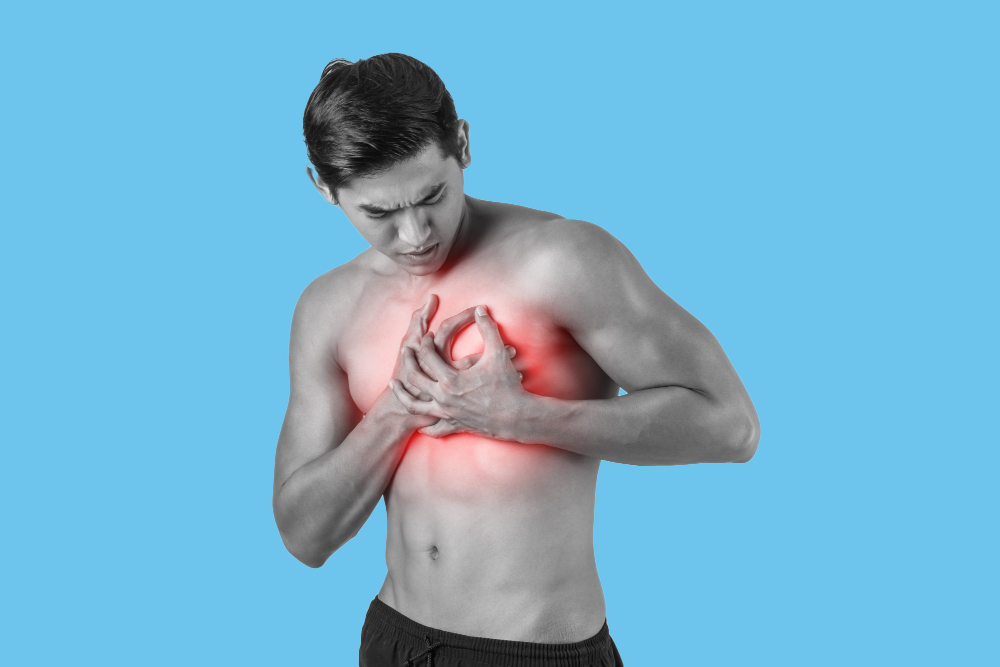What Is Angina (Chest Pain)?
Angina is a chest pain or discomfort that occurs if an area of your heart muscle does not get enough oxygen-rich blood. It is a common symptom of coronary heart disease, which limits or cuts off blood flow to the heart.
There are several types of angina, and the symptoms depend on which type you have. Angina chest pain, called an angina event, can happen when your heart is working hard. It can go away when you stop to rest again, or it can happen at rest. This pain can feel like pressure or squeezing in your chest. It also can spread to your shoulders, arms, neck, jaw, or back, just like a heart attack. Angina pain can even feel like an upset stomach. Symptoms can be different for women and men.
Type of Angina
The types of angina are stable, unstable, micro vascular and variant. The types vary based on their severity or cause.
Stable angina
Stable angina follows a pattern that has been consistent for at least 2 months. That means the following factors have not changed:
- How long your angina events last
- How often your angina events occur
- How well the angina responds to rest or medicines
- The causes or triggers of your angina
- Unstable angina
Unstable angina does not follow a pattern. It may be a new or occur more often and be more severe than stable angina. Unstable angina can also occur with or without physical exertion. Rest or medicine may not relieve the pain.
Unstable angina is a medical emergency, since it can progress to a heart attack. Medical attention may be needed right away to restore blood flow to the heart muscle.
Microvascular angina
Microvascular angina is a sign of coronary heart disease affecting the tiny arteries of the heart. It can be stable or unstable. They can be more painful and last longer than other types of angina, and symptoms can occur during exercise or at rest. Medicine may not relieve symptoms of this type of angina.
Variant angina
Variant angina is rare. It occurs when a spasm — a sudden tightening of the muscles within the arteries of your heart — causes the angina rather than a blockage. This type of angina usually occurs while you are at rest, and the pain can be severe. It usually happens between midnight and early morning and in a pattern. Medicine can ease symptoms of variant angina.


Symptoms
Symptoms vary based on the type of angina you have and on whether you are a man or a woman. Angina symptoms can differ in severity, part in the body, timing, and how much relief you may feel with rest or medicines.
Common symptoms
Pain and discomfort are the main symptoms of angina. Angina is often described as pressure, squeezing, burning, indigestion, or tightness in the chest. Some people say that angina pain is hard to describe or that they cannot tell exactly where the pain is coming from.
Other symptoms include:
- Extreme tiredness
- Light-headedness or fainting
- Nausea, or feeling sick in the stomach
- Shortness of breath
- Sweating
- Weakness
Symptoms of angina can be different for women and men. Instead of chest pain, or in addition to it, women may feel pain in the neck, jaw, throat, abdomen, or back. Sometimes this pain is not recognized as a symptom of a heart condition. As a result, treatment for women can be delayed.
What causes angina?
Angina happens when your heart muscle does not get enough oxygen-rich blood. Medical conditions, particularly heart disease, or lifestyle habits can cause angina
Two types of coronary heart disease can cause angina.
Coronary artery disease happens when plaque builds up inside the large arteries that supply blood to the heart. This is called atherosclerosis. Plaque narrows or blocks the arteries, reducing blood flow to the heart muscle.
Coronary micro vascular disease affects the tiny arteries that branch off the larger coronary arteries. Reduced blood flow in these arteries causes micro vascular angina. The arteries may be damaged and unable to expand as usual when the heart needs more oxygen-rich blood.
What raises the risk of angina?
You may have an increased risk for angina because of your age, environment or occupation, family history and genetics, lifestyle habits, other medical conditions, race, or sex.
Unhealthy life style such as Alcohol use, for variant angina, Illegal drug use, which can cause your heart to race or damage your blood vessels, Lack of physical activity, Smoking tobacco or long-term exposure to secondhand smoke, Stress, Unhealthy eating patterns and other medical conditions.